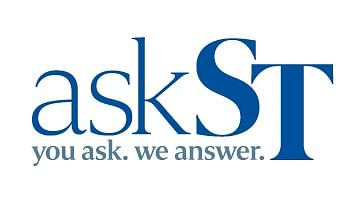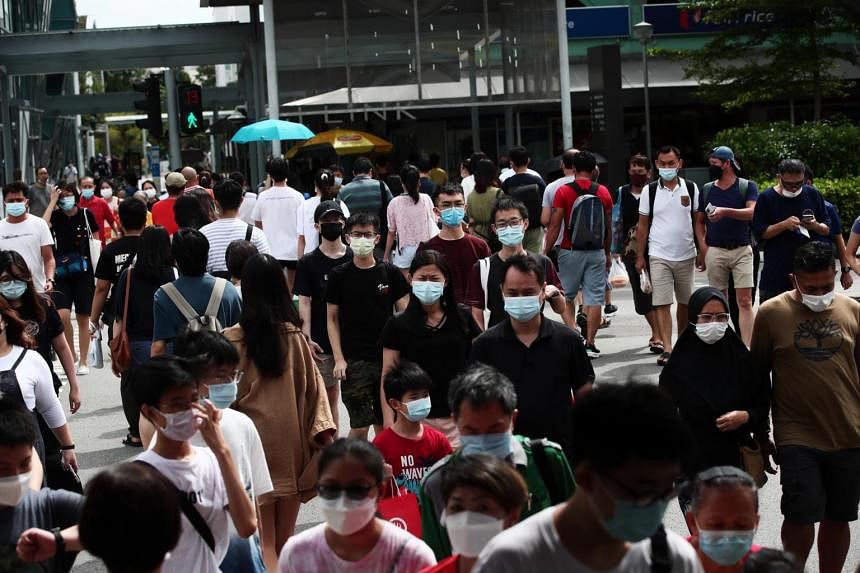SINGAPORE - Health Minister Ong Ye Kung on Thursday (June 2) warned that Singapore ought to be prepared for the next Covid-19 wave in July or August, especially as more Singaporeans travel abroad and new sub-variants continue to spread globally.
The Straits Times answers questions related to the Covid-19 situation.
Q: How many variants or sub-variants have there been since Omicron emerged in December 2021, and how different are they?
A: Singapore reported its first local Omicron case in December 2021 - a front-line worker at Changi Airport who got infected despite having received a booster shot of the Covid-19 vaccine.
Omicron has since spread rapidly, and this has given the variant many opportunities to mutate and acquire specific mutations of its own.
Some of these sub-variants include BA.1, BA.2, BA.3, BA.4 and BA.5.
There have been sub-variants of earlier versions of the virus, such as the Delta variant. However, Omicron has overtaken these, most likely due to its increased transmissibility.
Currently, these sub-variants look similar to the original Omicron variants, although there are some added mutations which give them a growth advantage over early versions of Omicron.
Coronaviruses will evolve constantly so this process of discovering new variants will be never-ending, even after Covid-19 becomes truly endemic, experts have said.
Q: Do vaccines protect against an Omicron infection?
A: Being fully vaccinated with a booster shot provides strong protection against infection with Omicron, at least in the short term. But this may become less effective over time, although there is still strong protection against serious illness if infected.
Q: Does Omicron spread faster than other variants?
A: Yes. Studies have shown that it is two to three times as likely to spread as the Delta variant.
Q: How many Covid-19 waves has Singapore seen since 2020?
A: So far, Singapore has experienced two large waves that impacted the general community. The first wave at the end of 2021 was mainly fuelled by the Delta variant, while the second huge wave around February this year was driven by the Omicron variant.
There were a few days in February this year where the number of reported daily new cases crossed 15,000 a day. The true case count is likely to be higher than the reported case count.
Q: What has been the trend on severe illnesses and deaths since end-April when Singapore relaxed most of its Covid-19 measures and lowered its disease outbreak response system condition (Dorscon) alert level from orange to yellow?
A: The number of people in the hospital has generally held steady, below 300. The number of people who require oxygen supplementation has also seen only slight fluctuations, generally below 50 people.
The number of people in intensive care units - generally below 15 - has also been low despite the easing of measures.
The number of people who have died has been in the single digits.
Q: What are the current protocols if one catches Covid-19?
A: There are three protocols.
Protocol 1 is for those who feel unwell. You should see a doctor. If you test positive, you will either be placed on the Home Recovery Programme (HRP) by default, or if your home environment is not suitable, you can recover at appropriate care facilities.
Protocol 2 is for those who are well but have tested positive for Covid-19. You should self-isolate at home for at least 72 hours and take an antigen rapid test (ART). If you become unwell at any time, such as high fever or breathlessness, see a doctor.
Protocol 3 is for those who have been identified as a close contact of an infected person. You should exercise social responsibility by performing an ART test. If you test negative, continue with normal activities for the day. Otherwise, follow protocol 2.
Q: Is the Government still paying for Covid-19 treatment?
A: The Government is currently footing the full Covid-19 medical bills of all Singaporeans, permanent residents and long-term pass holders.
Based on the Health Ministry's website on Nov 8, 2021, it said that "for the majority who are vaccinated, this special approach for Covid-19 bills will continue until the Covid-19 situation is more stable".
However, for Covid-19 patients who are unvaccinated by choice, there will be charges.
Covid-19 medical bills for those who are ineligible for vaccination will still be fully paid for by the Government.
Covid-19 patients who choose to be unvaccinated may still tap regular healthcare financing arrangements such as government subsidies and MediShield Life to pay for their bills where applicable.
Correction note: An earlier version of this article stated that the Government does not cover the full Covid-19 for medical bills for Singaporeans, permanent residents and long-term pass holders who test positive soon after returning from overseas travel. This is incorrect. The article has been updated. We are sorry for the error.













